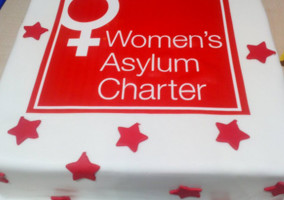Campaigners who helped to highlight the Windrush scandal, have said that despite its successes, it is an “incomplete” victory.
Delegates at NCVO’s Campaigning conference last week heard that there are more difficult stories that have yet to be told.
A panel session about the lessons from the Windrush scandal, also raised the issue of tension between using personal insights to campaign while making sure people are not exploited for their stories.
Speakers included Amelia Gentleman, a journalist at The Guardian, Kimberly McIntosh, a senior policy officer at Runnymede Trust, Patrick Vernon, a social activist, and Satbir Singh, who is chief executive at the Joint Council for the Welfare of Immigrants (JCWI).
‘The perfect storm’
The panel credited the nature of the Windrush campaign as reason for its successes.
Vernon, a former Hackney councillor, said the Windrush scandal had been “bubbling for a number of decades” before Gentleman put a “spotlight” on the issue through her journalism.
He said “the penny dropped” and petitions, journalists, charities and MPs like David Lammy, were all calling for compensation and justice.
Vernon describes the campaign as a “perfect storm” where “all these pieces all came together”.
“We did not sit in a big room and say let’s have a campaign called the Windrush scandal, we were doing something individually,” he said. But it was “a rare campaign where everyone got together from the far right to the far left, everyone recognised that this was an injustice”.
On the Windrush campaign, McIntosh from the Runnymede Trust said: “I think the personal stories from people being affected is what really helped to drive it forward.” But she added that this did “raise questions about how you run a campaign if you do not have a personal story”.
She said that as the campaign became more popular, there was a "lack of care actually to some of the people that have been affected'' because some people were “looking for a sensationalist story rather than trying to tell the story of an injustice”.
Use Windrush as leverage
McIntosh said that people were less interested in the more “difficult” stories. For example stories about those who had been involved with the criminal justice system; “there are still huge issues with the narrative around it, people who are seen as deserving and then people who are not”.
“We’ve made one step” but “we want to campaign on new issues that are related to Windrush,” she explained. Campaigners should “use Windrush as leverage to make wider criticisms of the policy, because we have not seen enough reform”.
Others on the panel shared McIntosh’s concern that some campaigning forces a monolithic narrative.
Singh, from JCWI, suggested that filtering the stories of people “creates a new binary of who’s good and who’s bad”. For example, if someone did not work in the NHS, would that entail that they are “not worthy”.
He said this meant that the success of the Windrush campaign was “incomplete” and needed to be “qualified”.
Campaigns about race are getting traction
But McIntosh said that “racism is a difficult thing to campaign on” and because the Windrush generation are “a group that historically is seen as an outside group” she had not expected traction.
“I was told that I would probably never in my career work on a campaign related to race or racism that was in anyway successful,” she said.
But given that a “wide range of the public” had responded to the Windrush scandal, McIntosh suggested audiences are more “receptive” than expected.
‘One campaign finishes and another one starts’
Some members of the panel pointed towards several other changes which should happen for the campaign to be considered a total success. Namely, the hostile environment, which still exists in some form, should be addressed and a government inquiry should be launched.
But Vernon noted that the campaign had “galvanised” the sector and “recognition” was given to the Windrush generation, to an extent.
Vernon recommended that campaigners consider three key parts of a campaign:
- Ensure the campaign has influence from individuals with lived experiences and/or the help of community groups
- Be clear in your key ask
- Maintain credibility through being experts on your subject matter
“One campaign finishes and another one starts,'' he said.
|
Related articles











